The Lymphatic System: Four Interesting Facts You'll Want to Know
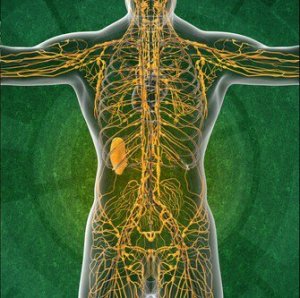

Written and verified by the doctor Maricela Jiménez López
Your lymphatic system is a part of your circulatory system.
It’s like a network, an incredibly complex system made up of communicating vessels, specialized tissue, and organs. These organs, like the spleen, do a very specific and wonderful job: eliminate toxins, waste, and other unwanted material from your body.
However, it does many other indispensable things for your health that you’ll definitely want to know.
Today, we’d like to help you learn more about the lymphatic system. We’ll take a look at what it is, what it does, and most of all, what you can do to take better care of it.
1. The lymphatic system and lymph
Your body’s lymphatic system removes useless elements, like waste and dead cells. In addition, it has another equally important job: strengthening your immune response.
It does this with lymph. This is a liquid that activates your natural defenses and strengthens your white blood cells.
Plus, the lymphatic system also controls the concentration of protein in your body. Meanwhile, it regulates your production of chyle, a fluid that is formed out of bile and encourages the production of certain amino acids.
As you can see, it has a more fascinating job than you probably thought!
2. Organs that make up the lymphatic system
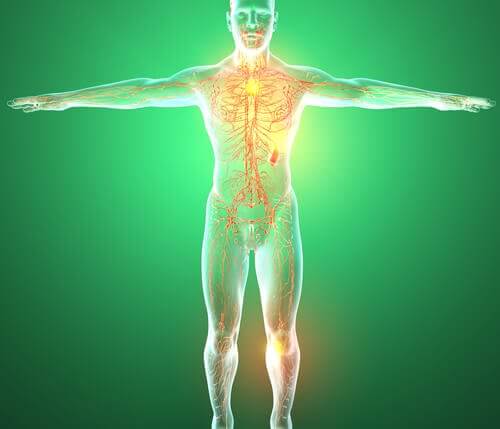
Here’s an interesting fact: your brain is connected to your lymphatic system through your sinuses. Thus, what we’re talking about is a network of blood vessels that extend through practically your entire body.
Let’s take a look at the most important parts of it.
Bone marrow
Bone marrow, as you know, produces every cell you have in your body. Among these cells we find lymph and lymphocytes that make up your lymphatic system.
“Find out How to Become a Bone Marrow Donor”
The thymus
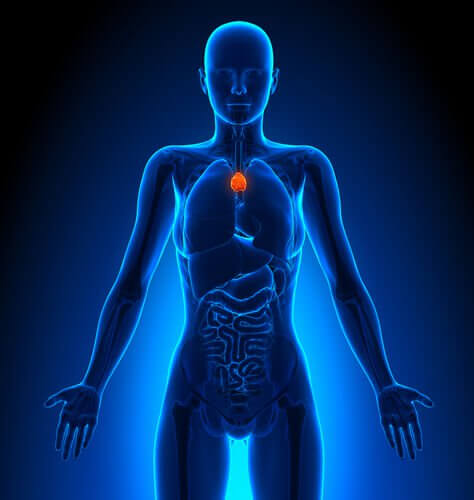
We’ve talked about the thymus before here.
This small structure has a very important purpose in the lymphatic system. It grows lymphocytes, an essential type of white blood cell in your immune system.
The spleen
Some people still think that the spleen has no purpose. However, this is a myth. After all, this organ has the important job of filtering your blood and removing problematic cells or waste that your body no longer needs.
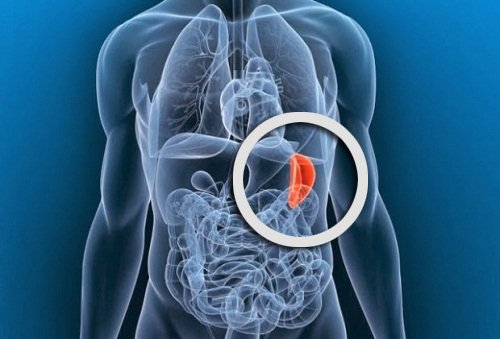
The lymph nodes
What you probably already know about the lymph nodes is that they get inflamed sometimes. Plus, they’re susceptible to cancer, including Hodgkin and non-Hodgkin lymphoma.
But what else should you know about them?
- They’re small nodes that are found in groups in different parts of your body, like your armpits and groin. Their purpose is to fight germs and infection.
“Read this too: What Should You Do About Swollen Lymph Nodes?”
3. Illnesses and the lymphatic system
The first sign of an illness of the lymphatic system is inflamed lymph nodes. This is the most noticeable symptom. However, there are other signs too.
Let’s look at some information on them.
Lymphedema
- This is a common problem in women who have undergone a mastectomy due to breast cancer.
- What happens is that lymph accumulates. Thus, the person sees an increase in volume and noticeable inflammation in their arms or legs.
Adenopathy
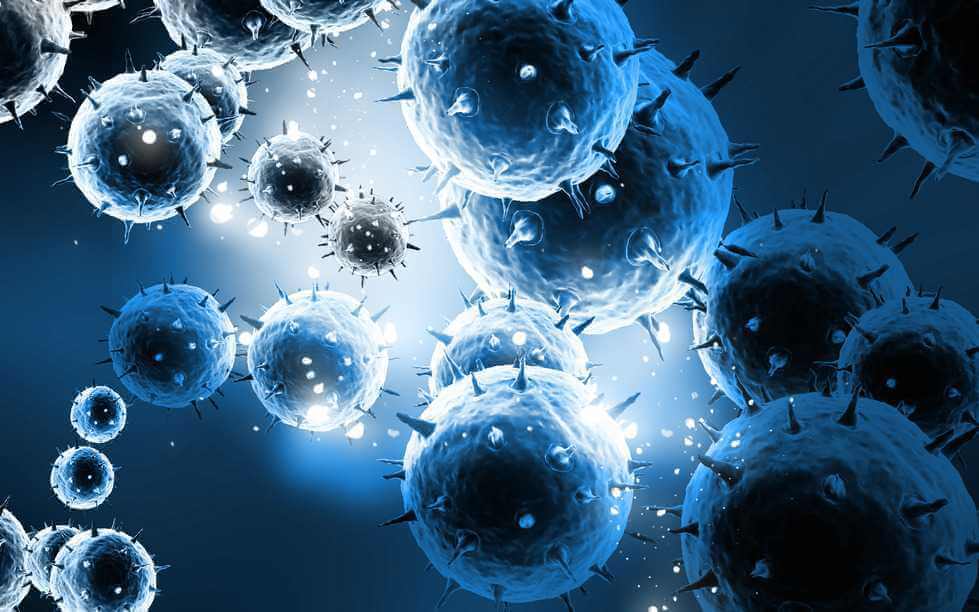
- Adenopathy is inflammation of the lymph node. It isn’t always caused by cancer. In fact, most of the time it’s the result of a weak immune system.
- In addition, adenopathy is also commonly caused by viruses like the measles or mononucleosis.
- Like we mentioned above, inflamed lymph nodes are also associated with Hodgkin or non-Hodgkin lymphoma. Fortunately, these are diseases that can have a good prognosis if caught early.
Lymphedema
We can break this one down into lymphodynamic and lymphostatic edemas.
The former kind is caused by simple circulatory problems. However,e the latter is due to lymphatic failure due to protein accumulation.
4. Tips for taking better care of your lymphatic system
You now know that the lymphatic system has two very fundamental jobs:
- First, it purifies your body.
- Second, it helps protect it from viruses and bacteria by fortifying your immune system.
Therefore, it’s vital to improve your habits. This way, you can take care of this network of organs, lymph nodes, and lymphatic vessels that do so much for you.
Here are some simple tips to do it:
- Eat fresh, organic food.
- Make an effort to lower your stress levels.
- Sleep between 7 and 9 hours a day.
- Take hot, relaxing baths and end with a cold shower.
- Exercise moderately.
- Drink water with lemon.
- Massages that activate lymphatic circulation are very beneficial.
- Nettle and aloe vera teas are exceptional.
- Practice yoga.
To conclude, your lymphatic system deserves your attention.
All it takes is taking a little bit better care of yourself. Keep in mind that simple things like eating a balanced diet and managing your emotions well have a direct impact on your health and happiness.
How will you put this into practice today?
All cited sources were thoroughly reviewed by our team to ensure their quality, reliability, currency, and validity. The bibliography of this article was considered reliable and of academic or scientific accuracy.
- Ferrandez, Jean-Claude. El sistema linfático. Ed. Médica Panamericana, 2006.
- Rozman, C., and E. Montserrat. “Sistema linfático y síndromes adenopáticos.” Medicina Interna 2 (1995): 1491-3.
- Tortora, Gerard J., and Bryan Derrickson. Principios de anatomía y fisiología. Médica Panamericana,, 2013.
- Cleveland Clinic. Lymphatic System. (2020). Recuperado el 28 de febrero de 2021. https://my.clevelandclinic.org/health/articles/21199-lymphatic-system
- Benioff Children’s Hospital. Whats is bone marrow. Recuperado el 28 de febrero de 2021. https://www.ucsfbenioffchildrens.org/education/what_is_bone_marrow/
- National Health Services. Spleen problems and spleen removal. (2019). Recuperado el 28 de febrero de 2021. https://www.nhs.uk/conditions/spleen-problems-and-spleen-removal/
- Clínica Mayo. Linfedema. (2018). Recuperado el 28 de febrero de 2021. https://www.mayoclinic.org/es-es/diseases-conditions/lymphedema/symptoms-causes/syc-20374682#:~:text=A%20veces%2C%20se%20hinchan%20ambos,forma%20parte%20del%20sistema%20inmunitario.
This text is provided for informational purposes only and does not replace consultation with a professional. If in doubt, consult your specialist.








